
With new productions taking the stage in New York and Philadelphia, it’s been a banner week for the Big Three of Italian opera composers: Jeaninie Tesori’s Grounded, of course, opened the Met season on Monday; on Wednesday, Missy Mazzoli’s The Listeners opened the season at Opera Philadelphia; and on Thursday, the US premiere of Paola Prestini’s Silent Light, on a libretto by Royce Vavrek, opened the 10th anniversary season at Williamsburg, Brooklyn’s National Sawdust.
Based on the film by Carlos Reygada, Silent Light is a chamber opera set in a Mennonite community in northern Mexico and (I was surprised to learn) only the first full-length opera of Prestini’s to be performed at the intimate listening venue that she helped to found and for which she serves as artistic director.
I said “intimate:” that may be an understatement. I’ve been to National Sawdust many times before, and every time I’ve marveled at just how up-close the music is made, but when I walked into the room, I found that it was now dominated by a minimal set comprising a kitchen (with long kitchen table), benches for the chorus, grandfather clock, and an elevated pool—all built out of plain plywood—with room for just two or three rows of audience seating on the floor, and the rest perched in the hall’s high balcony.
Tucked away stage left was the tiny pit band, a quintet drawn from the NOVUS new music ensemble of Trinity Wall Street, with conductor Christopher Rountree (of Long Beach Opera and the new music ensemble WildUp); stage right was foley artist Nathan Repasz, who used a battery of ordinary objects and the venue’s audiophile amplification system to perform live sound effects designed by eccentric composer-performer Sxip Shirey and himself.
Director and scenic designer Thaddeus Strassnberger’s production had been advertised as “immersive,” and brother, they weren’t kidding. Not only did there seem to be more stage than audience in the room, the production luxuriated in the texture of its characters’ lives. The piece opens with the sounds of chirping crickets, then the ticking of a clock as the family’s slow morning routine begins; the audience hears and smells real bacon sizzling as Esther (Brittany Renee) and her mother (Margaret Lattimore) cook breakfast for the family. At the garage, when Esther’s husband Johan (Daniel Okulitch) asks his mechanic friend Zacarias (Anthony Dean Griffey) what to do about his feelings for another woman, the foley artist runs a power tool while stage smoke billows in the air. That is to say, the sound effects aren’t just “sound effects”; they become a sort of ambient percussion, as musical in their own way as the score itself.
The piece offers a small cast of characters, and very little plot. Johan has an affair with Marianne (soprano Julia Mintzer); heartbroken, Esther runs out into a rainstorm and dies; in a moment of surrealism, magical realism, or fantasy, Esther seems to return quietly to life. Most of this happens in brief numbers that flow easily from one to the next, but among those numbers, the piece makes time for hymns, dances, and scenes of children at play, as if microdosing grand opera in one 90-minute act.
Okay, at this point in a review for Parterre dot com—assuming you’ve made it this far—I know you’re all shaking your monitors and screaming, BUT HOW WAS THE SINGING?! And I’m gonna be real with you: when I walked out of the hall and realized just how little I had to say about the singing in this show, I felt pretty stupid. But then I realized… maybe thatsays something about the show, in and of itself.
It’s not a star vehicle, although the cast was (for a small, new opera) positively star-studded—nay, star-encrusted! It just isn’t a piece for showing off. It’s not that kind of a story, with those kinds of roles. These are repressed, ambivalent characters, scarcely able to articulate their feelings to themselves, let alone each other, and so the tenderest duets aren’t between any pair of lovers in the Eternal Triangle at the heart of the drama, but between Johan and Zacarias, or Johan and his father (bass-baritone James Demler), when he asks them for advice, which gives some idea of just how patriarchal and emotionally compartmentalized this cloistered community is.
In fact, Johan and Marianne remain mute throughout their first, gripping love scene. While every vocal performance was faultless, and there were quite a few memorable voices (notably the American Griffey’s British-style warble, rich with character, and Lattimore’s weighty, mournful mezzo), what most remains with me now is Okulitch’s haunted gaze, and his electrifying chemistry with Mintzer when we see them climb into the onstage pool and, almost physically and emotionally naked, consummate their love for the last time—not the way his warm, sensitive baritone voice intertwined with her bright and natural soprano, et cetera.
I couldn’t see them as opera singers—these were true actors, every member of the cast, and they disappeared into their roles—a testament to the seamlessness of their physical and vocal performances, as well as an indication of Prestini’s decision not to demand sustained and indulgent vocalism.
That scene between Johan and Marianne, and Esther’s dying soliloquy in a very real onstage downpour, are the only points of truly operatic abandon in the whole show—the only vocal moments where something pivots, emotionally, and gives way. This is clearly intentional: note that both of those moments are staged in the water, much like the carefree splashing children at play earlier in the piece, using the shock of seeing opera singers getting actually, literally drenched onstage to heighten the audience’s sense that these are moments when anything could happen—sex, or death—and does. (Talk about “immersive”! Har har.)
Earlier, Zacarias’s advice to chase a new romance instead of fidelity is offered in a garage full of sparks and smoke, whereas Father’s advice to remain true comes on a walk accompanied by the (simulated) sounds of crunching ice as a snowfall is projected across the backdrop, offering a contrast between the elemental symbolism of these moments and the overflowing emotion represented by the water onstage.
While the singers gave their all, musically and dramatically, to the faultless performances they delivered in these climaxes, the singing that most dazzled me were the two hymn settings near the beginning and end of the opera—one luminously diatonic, one thornily dissonant—when Rountree crossed the stage to lead the cast as a perfectly blended and unified whole through exposed and rangy writing that would challenge the most polished cathedral choir.
This is not to diminish the vocal dimension of, for example, Renee’s heartbreakingly ingenuous performance as Esther, but rather to say that this is not what the piece is about. It’s about storytelling. Likewise, Prestini’s score doesn’t draw attention to itself: the vocal writing follows the melodies of speech; there were no musical showstoppers, no numbers that I wished I could rush home to give an immediate re-listen on an as-yet-nonexistent recording of this work. And yet the music was at every point dramatically compelling, without seeming cheap or manipulative.
Like an anti-Wagner, Prestini has built at National Sawdust a state-of-the-art musical venue in which she has offered us a vision of theatrical that marries the visual, musical and dramatic arts, but its doors are not locked against the outside world—National Sawdust’s exquisite curation flatly rejects the classical music world’s RETVRN aesthetics—and within, listeners find a monument not to the composer’s solitary genius but to the synergy of equal, interdisciplinary collaboration between artists from different fields.
The synergy of her intra-disciplinary collaborations is nothing to sniff at, either. The breadth of what Prestini accomplishes with such a small band is impressive, and surely owes much to their long history of working closely with the composer and with each other: she’s put out a whole album in collaboration with the trombonist (Dave Nelson) and percussionist (Marlon Patton), and cellist Jeff Zeigler is one of Prestini’s most devoted champions as well as an extraordinary solo and chamber player in his own right. I couldn’t tell you much about Prestini’s working relationships with trumpeter Gareth Flowers and concertmaster Katie Hyun, but I can tell you that they handily brought to life lines that offered lithe commentary on the more straightforward vocal writing.
The score’s characteristic instrumental gesture is soft, pulsing, repeated chords, at one point apparently using digital delays to build a vast wash of static harmonies out of the sound of a single trombone, but Prestini refuses to straitjacket herself into “minimalism” or into any one style, using the crackerjack ensemble to gesture towards funk, free jazz, and spikier post-tonalities in addition to the more straightforward lyricism of the vocals.
The 20th century of opera saw the art form branch off between opera as drama and opera as ritual, and composers in the 21st are still negotiating the balance between the two. Silent Light is a far cry from, say, Einstein on the Beach, but it’s not exactly verismo, either. It tells a story with real forward motion, but also opens up small, unexpected spaces for meditation throughout its relatively brief running time. Despite the ambiguity of the piece’s ending, I left the house feeling satisfied and filled with an odd, sad sense of peace, as if awakening from a bittersweet and melancholy dream.
Photos: Jill Steinberg

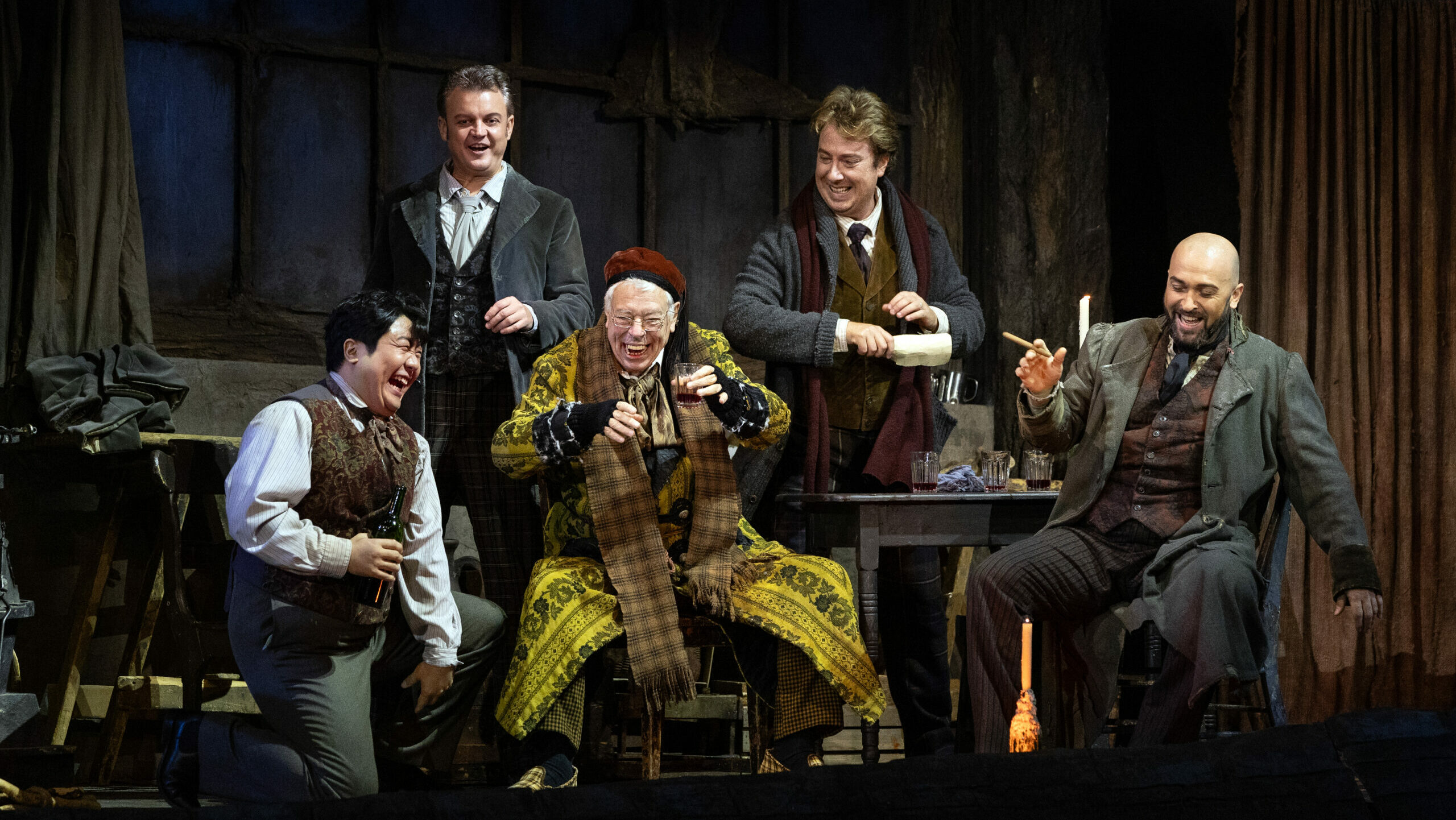
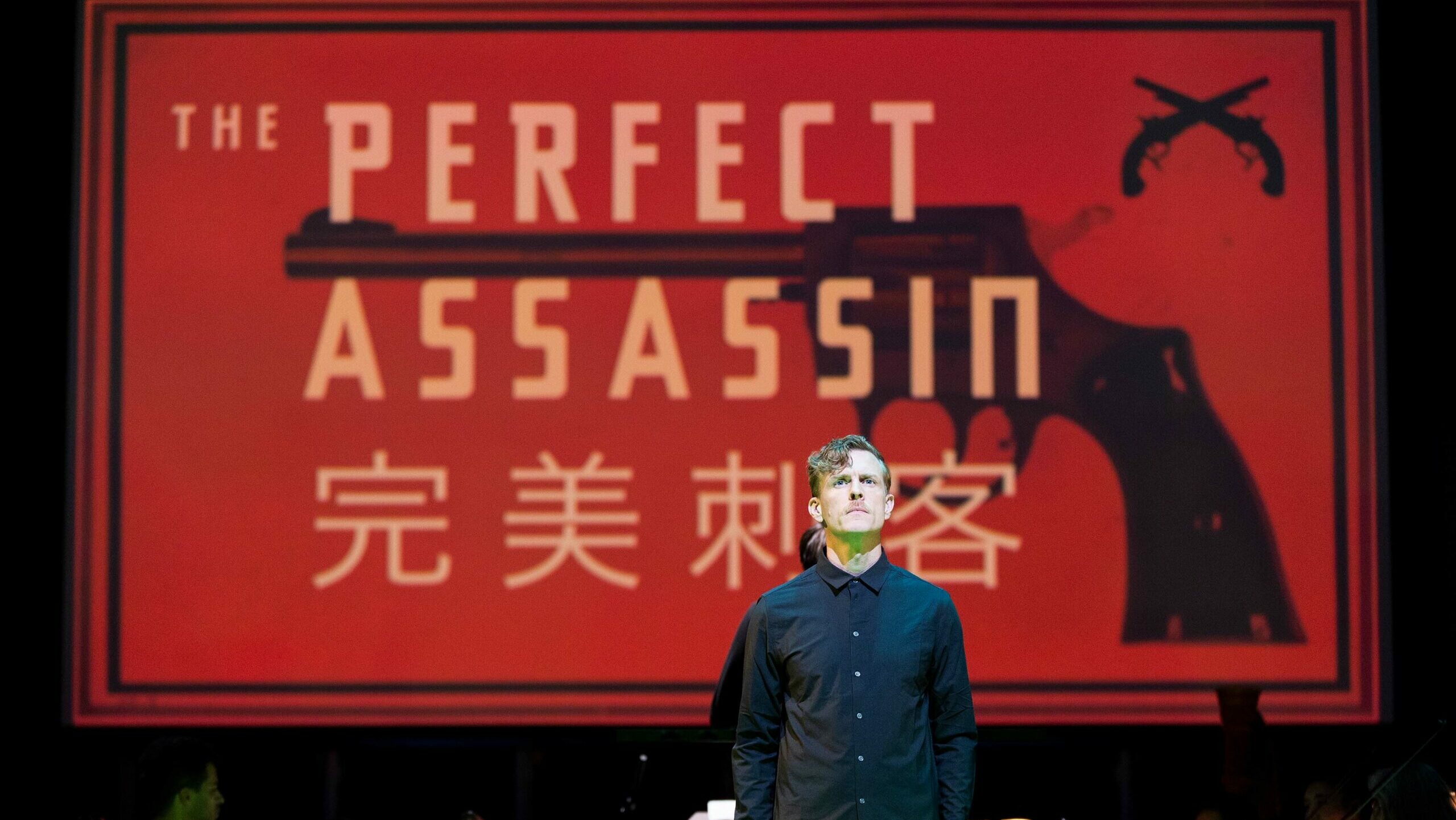
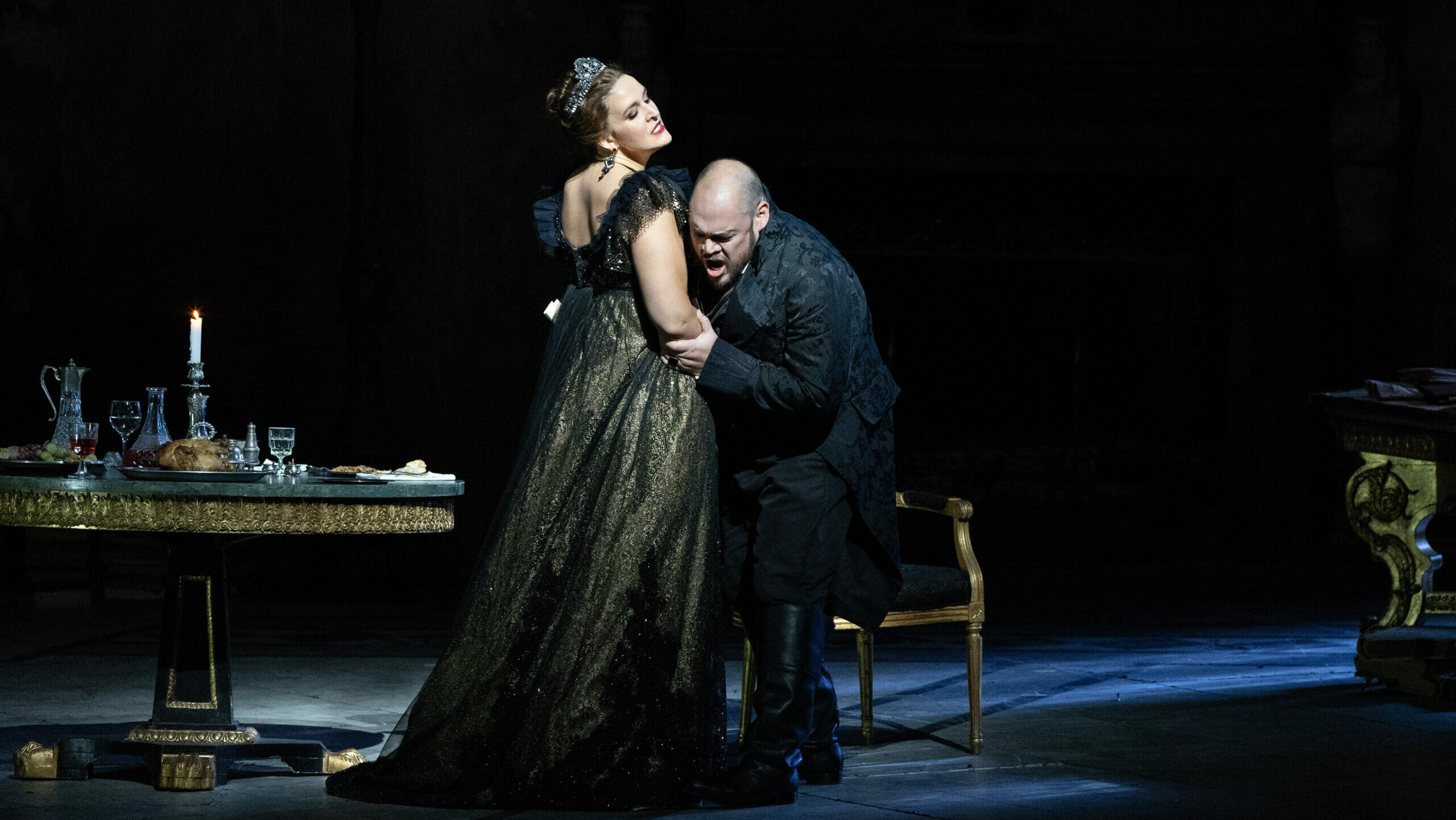

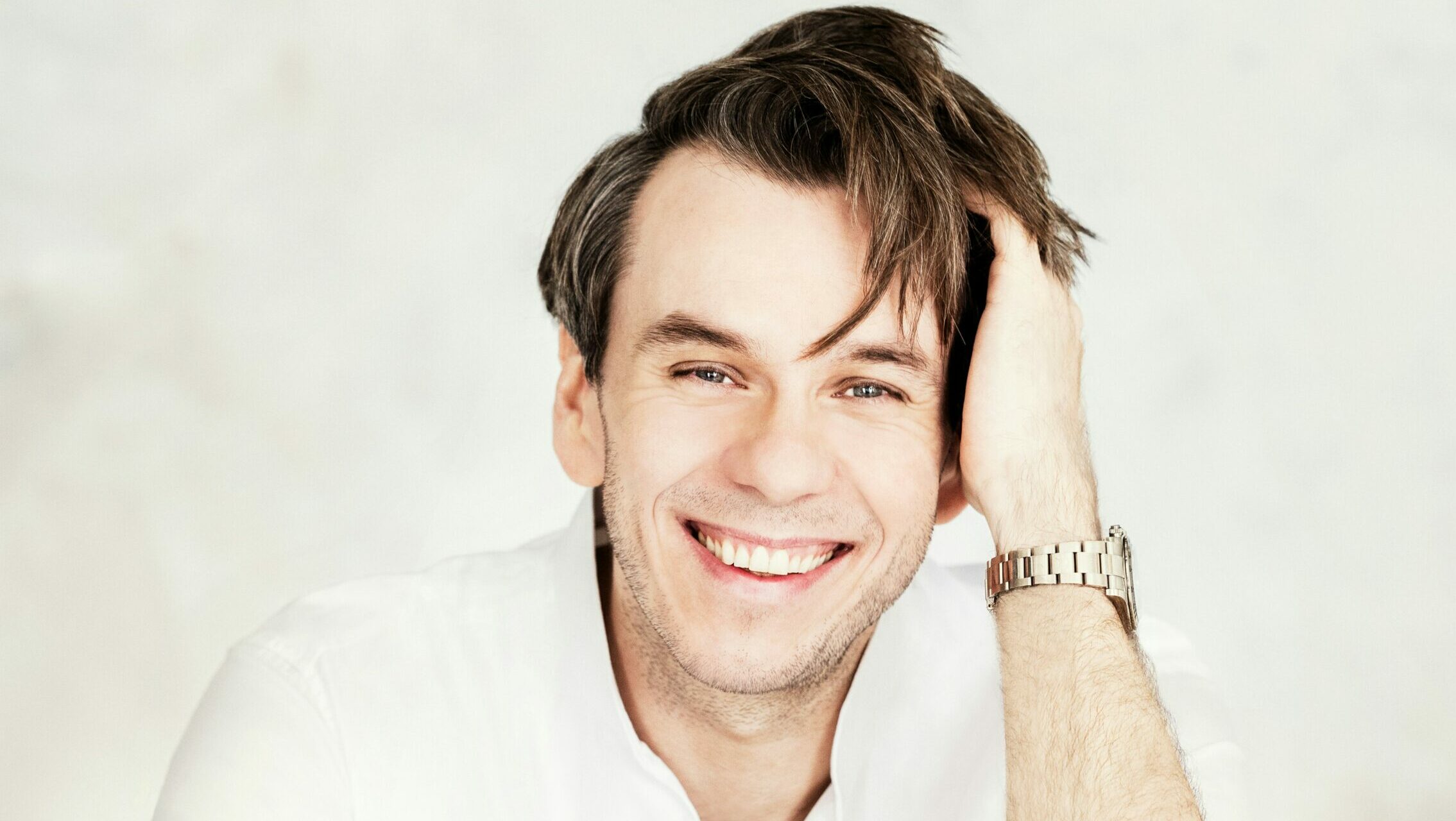
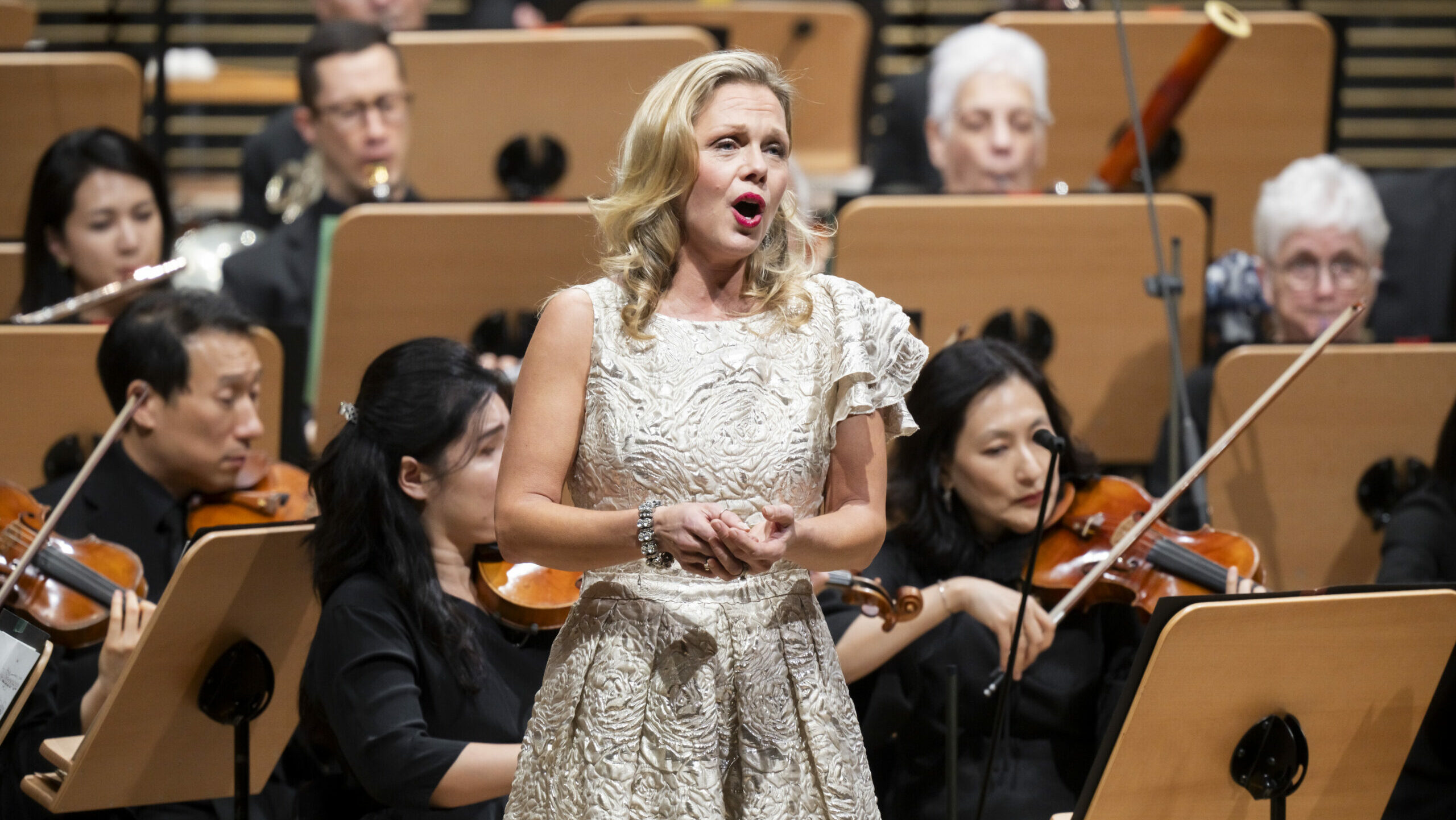
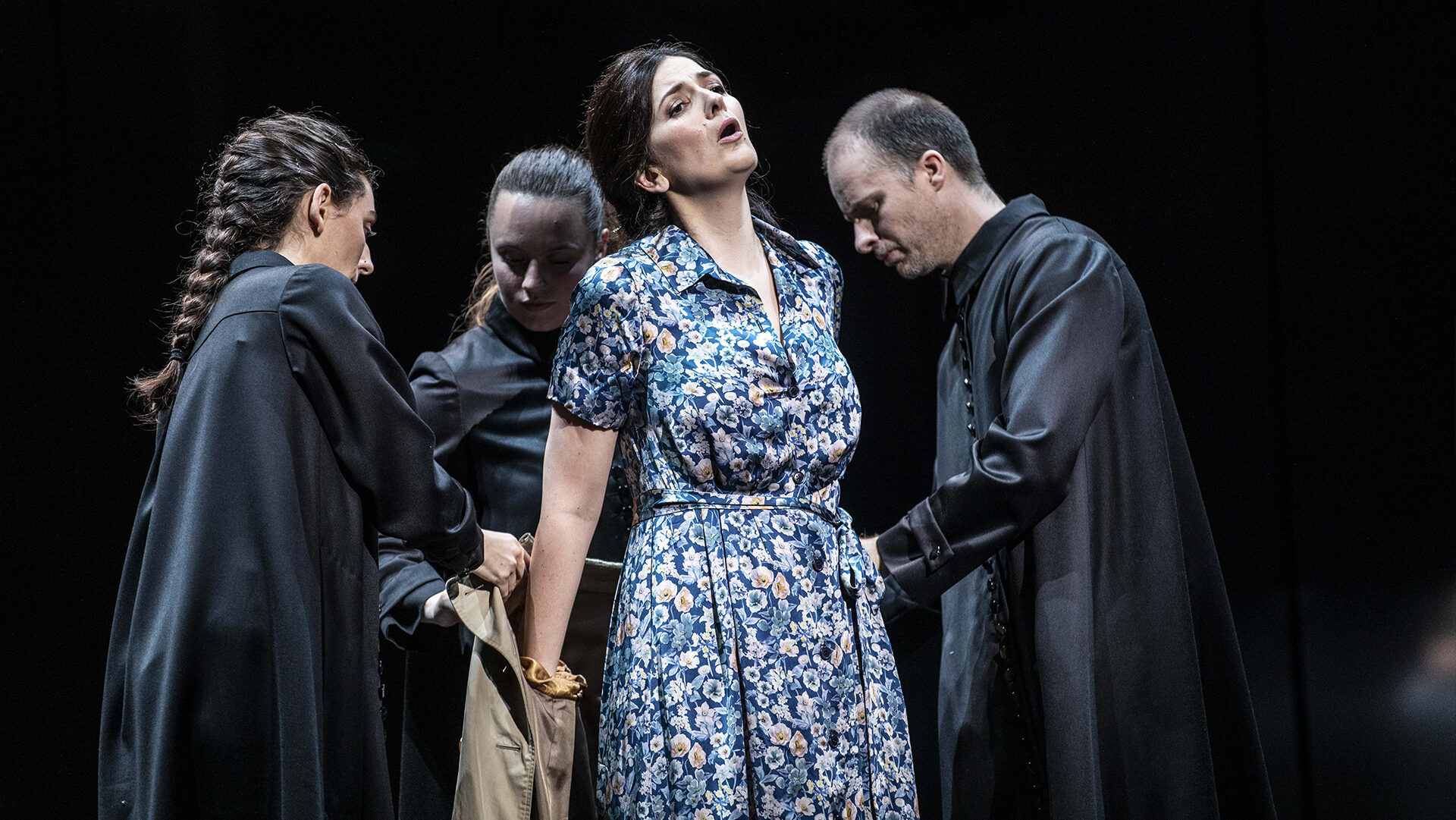
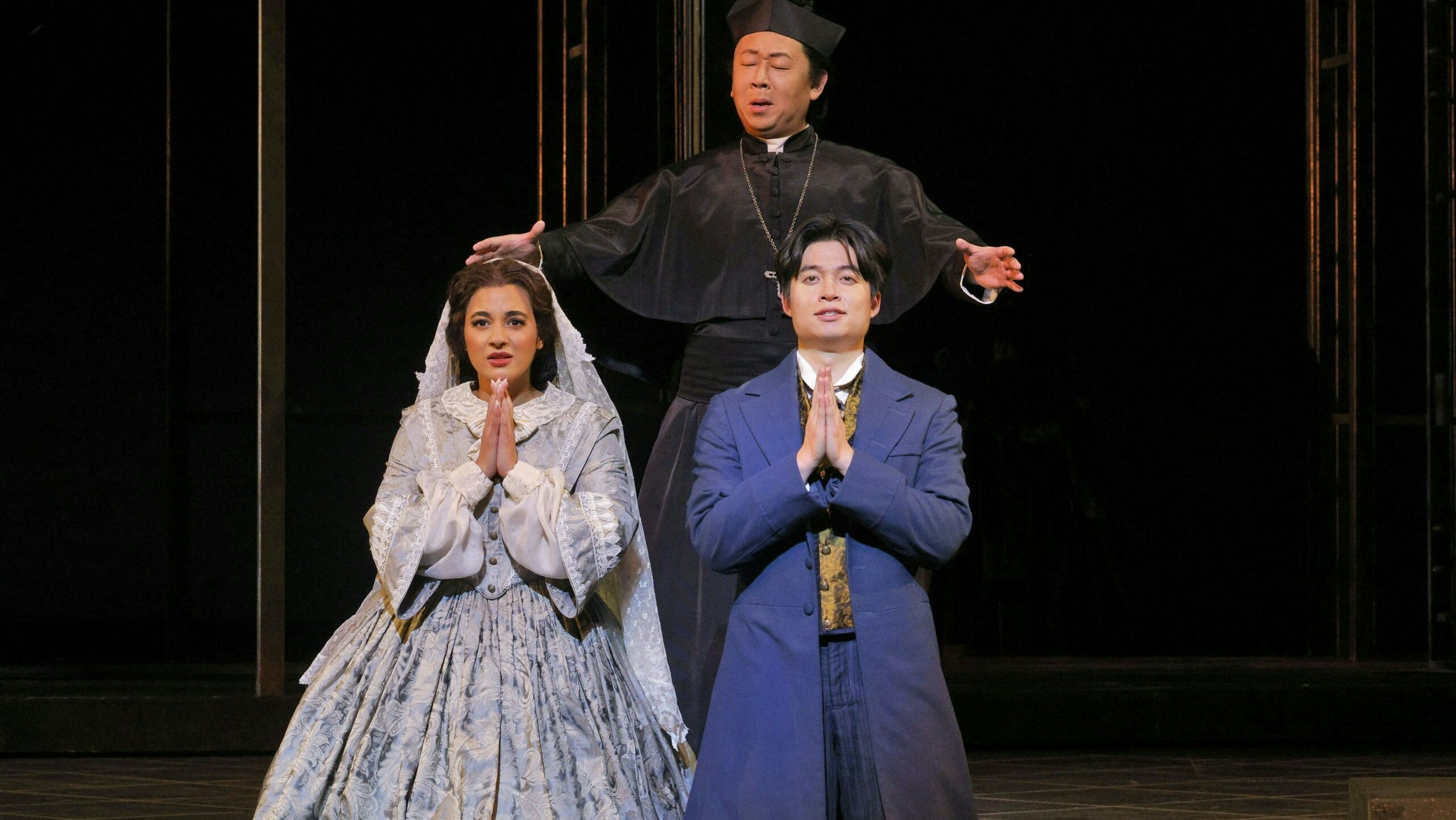
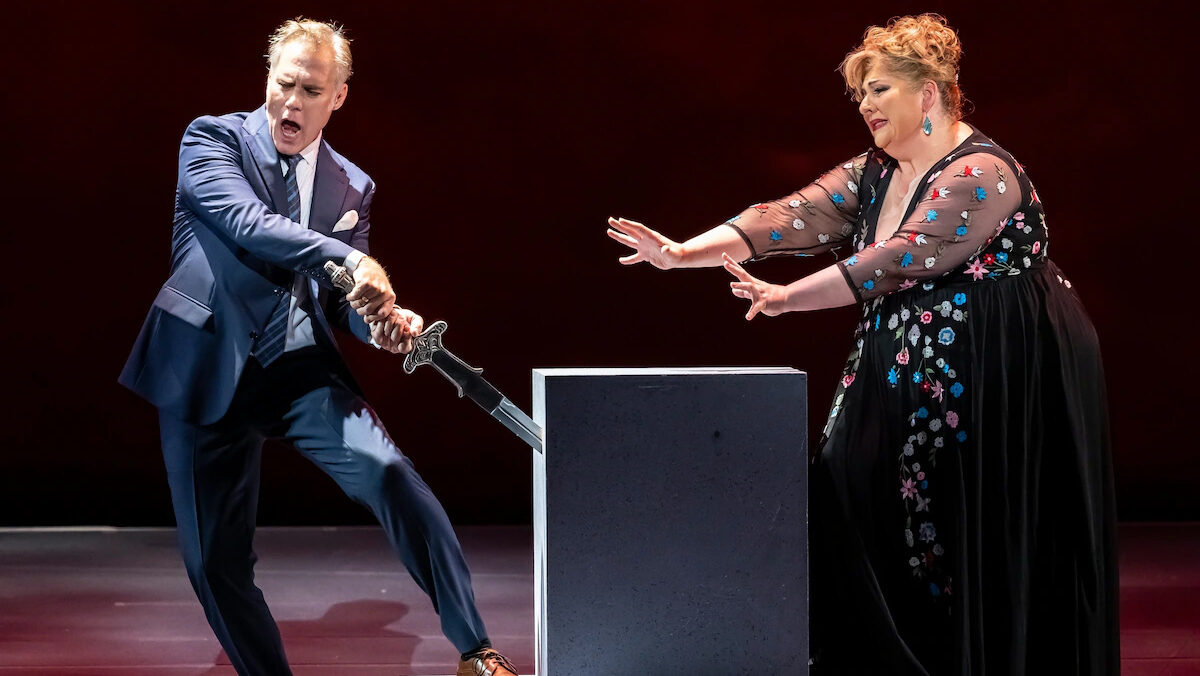
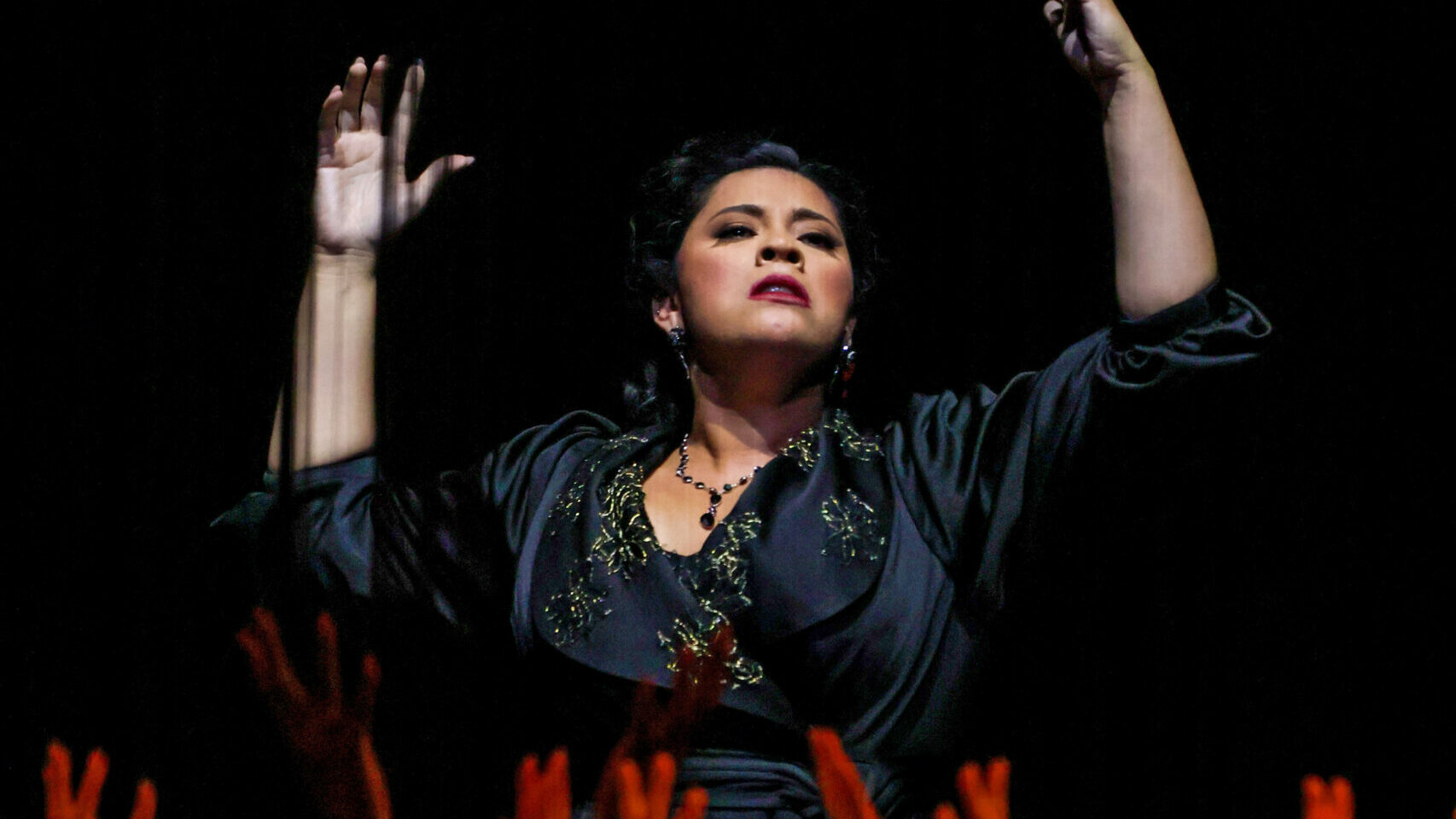
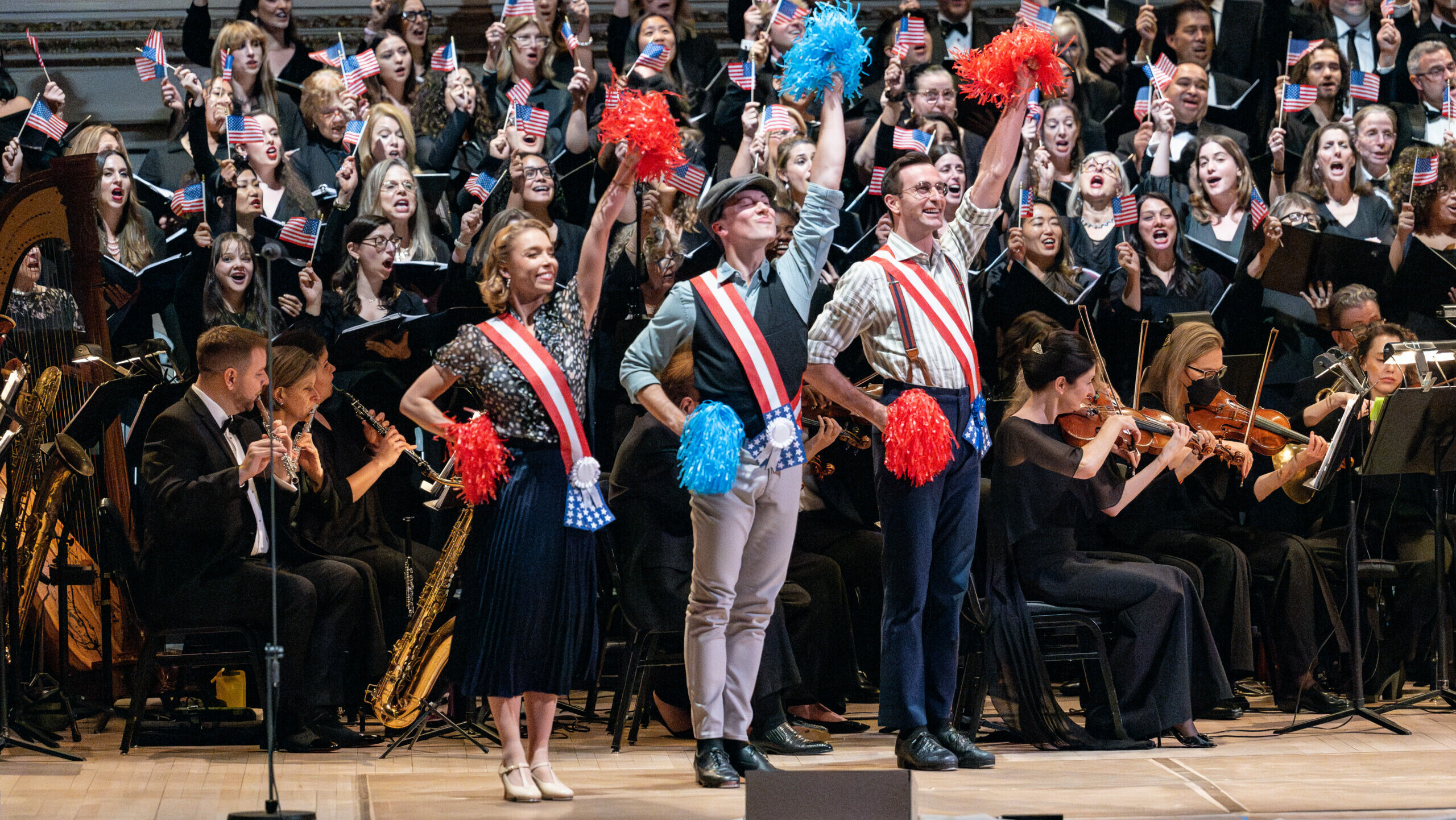
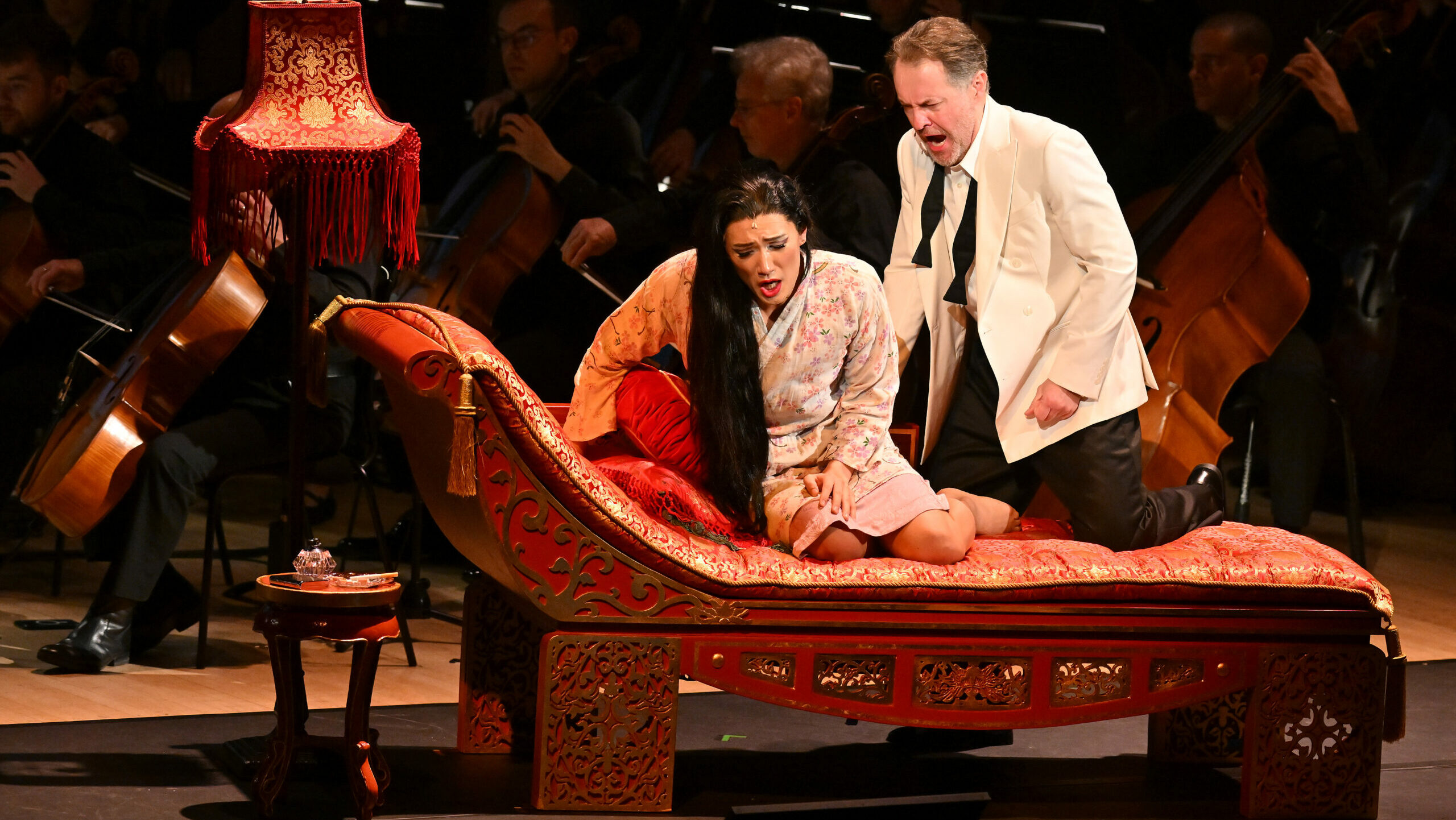
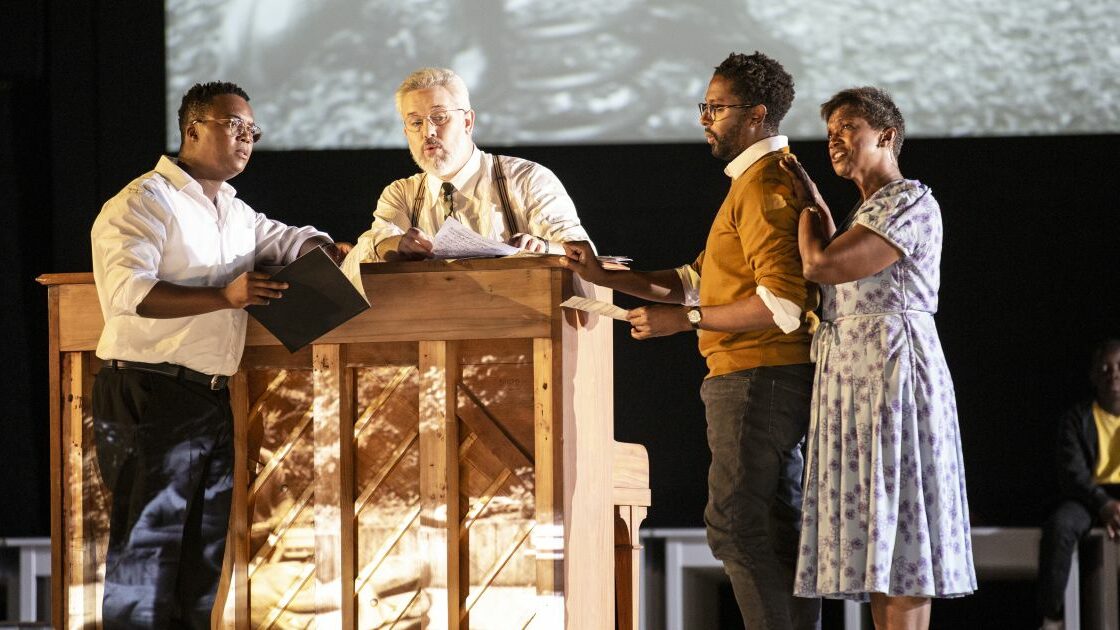
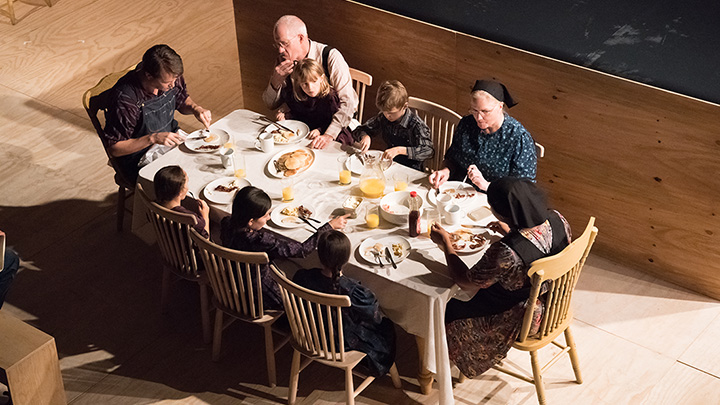
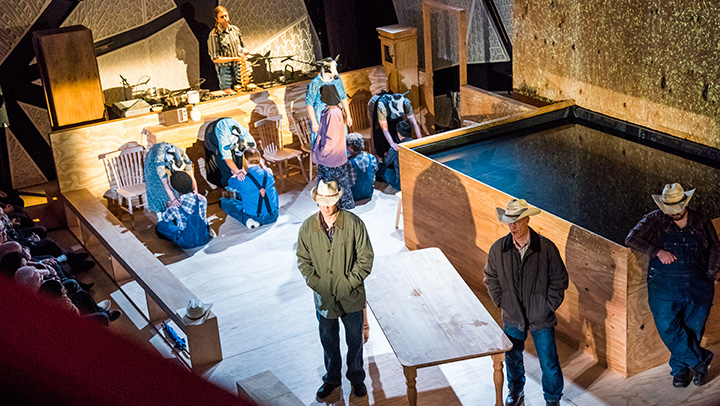
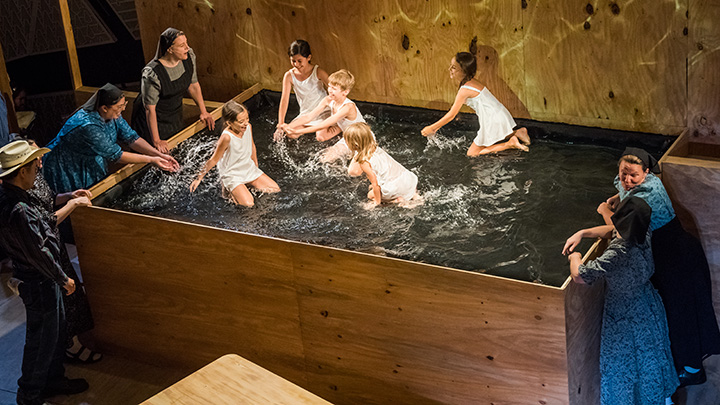
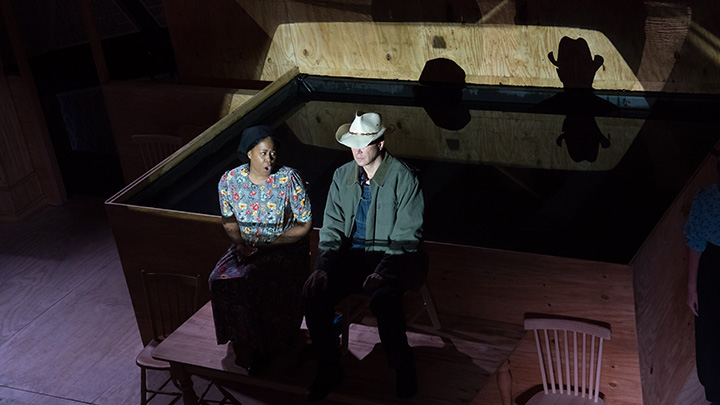
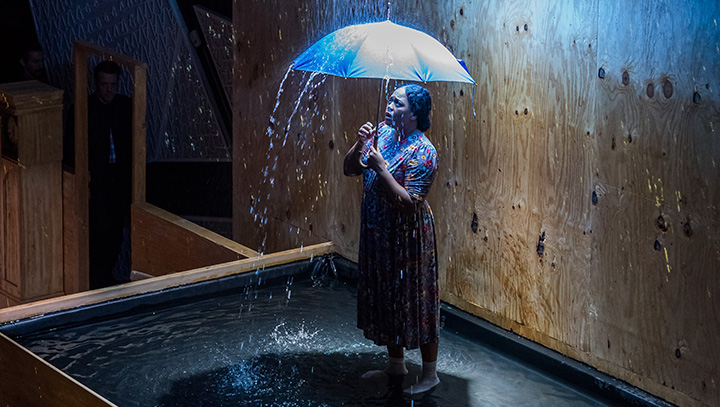
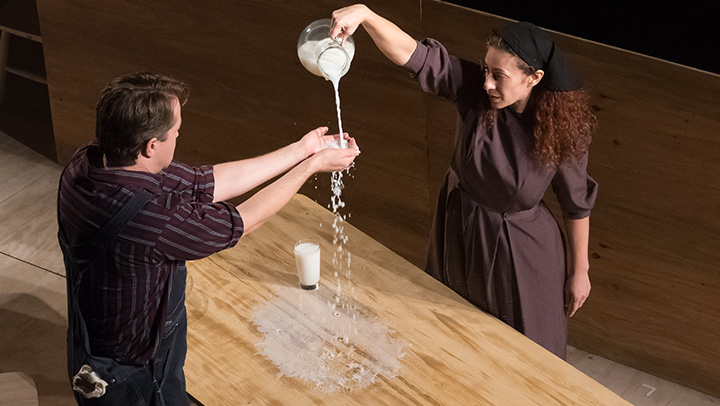




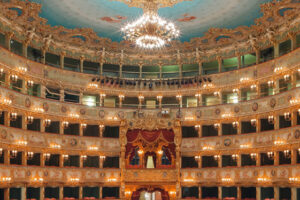
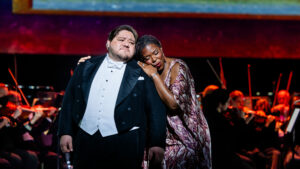





Comments